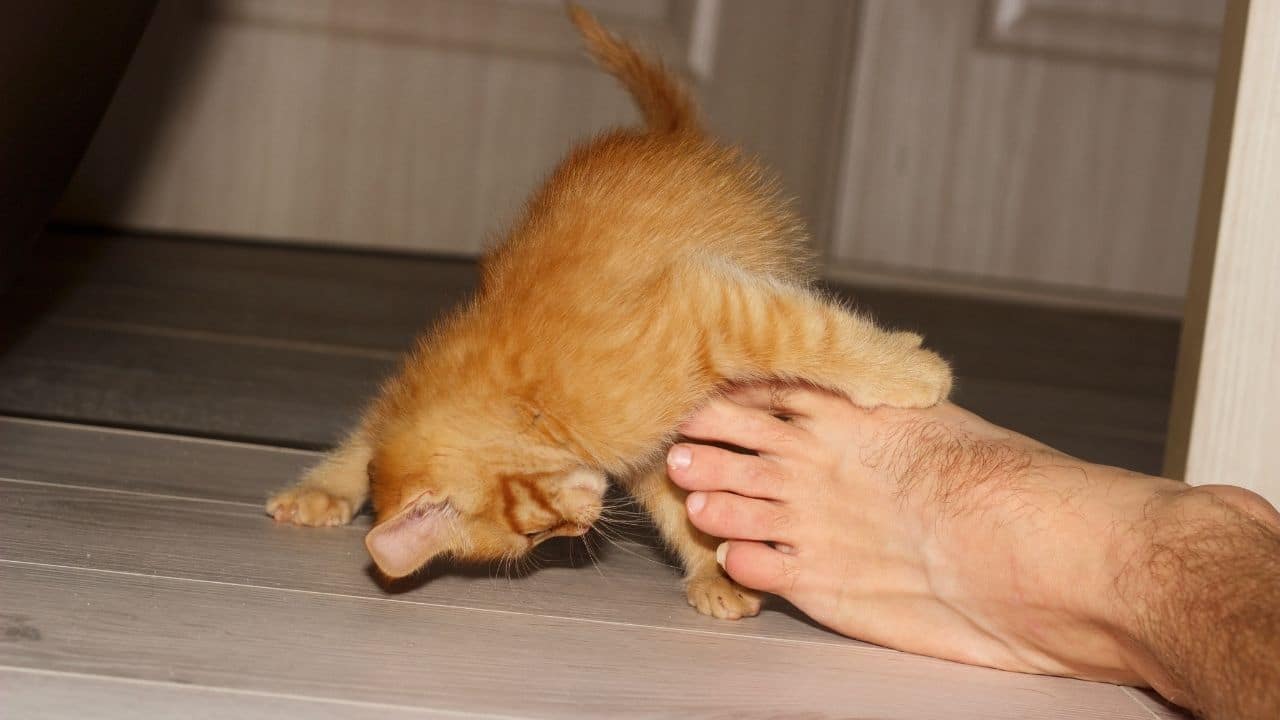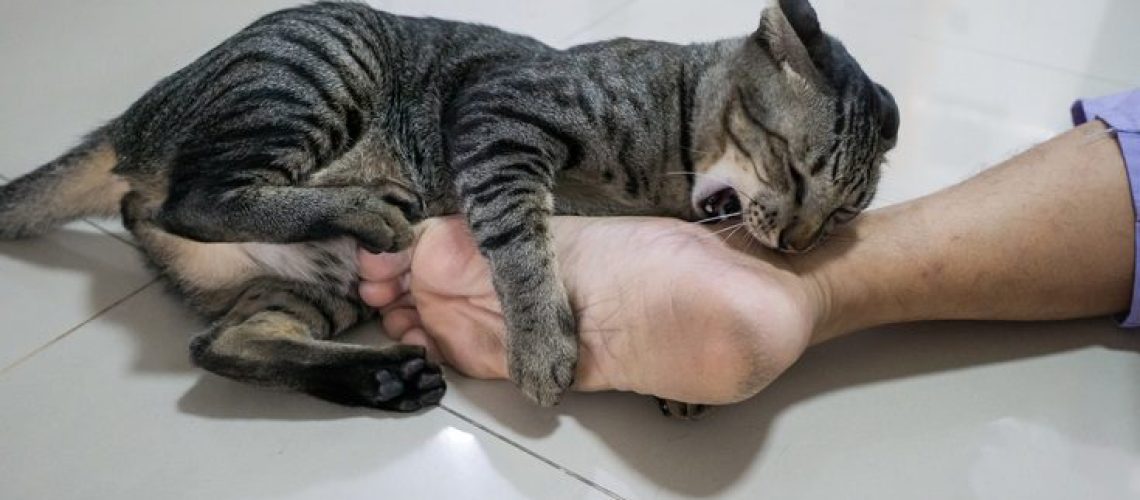The cat is one of the most common pets in the world and if you have one at home then you should be aware of its behavior. A cat can be very affectionate, but it can also be very aggressive if it is not treated properly.
Cats may occasionally attack their owner's legs for various reasons, and understanding the underlying causes can help address this behavior. Here are some common reasons why cats may exhibit this behavior:
- Playfulness: Cats are playful by nature, and they may view your moving legs as an enticing target. They may pounce on your legs, thinking of them as moving toys.
- Hunting Instinct: Cats are natural hunters, and their instincts can sometimes lead them to "hunt" moving objects, including your legs. This behavior mimics hunting for prey.
- Attention-Seeking: Some cats may nip or paw at their owner's legs as a way to get attention. If they feel neglected or want to initiate playtime, they may resort to this behavior.
- Boredom: Cats need mental and physical stimulation. If a cat is bored or lacks interactive playtime and toys, they may turn to attacking legs out of boredom.
- Young Cats and Kittens: Kittens, in particular, are prone to playfully attacking legs as part of their social and learning behavior. It's a way for them to practice their hunting skills and engage in play with littermates.
- Overstimulation: Cats have a threshold for stimulation, and excessive petting or interaction can sometimes lead to overstimulation. In response, a cat may nip or scratch as a way to signal that they've had enough.
- Fear or Defensive Aggression: If a cat feels threatened or frightened, they may react defensively by attacking. This can occur if the cat is cornered, feels trapped, or perceives a threat from the owner.
- Redirected Aggression: Cats can experience redirected aggression, where they become agitated by something outside (such as another animal) and redirect their aggression toward a nearby target, which may be your legs.
To address this behavior:
- Provide Adequate Playtime: Engage in interactive play sessions with your cat using toys that mimic prey, such as feather wands or laser pointers. This can help channel their energy and hunting instincts in a positive way.
- Enrichment: Provide your cat with stimulating toys and activities, such as puzzle feeders, cat trees, and scratching posts, to keep them mentally and physically engaged.
- Set Boundaries: If your cat's behavior is bothersome or aggressive, teach them appropriate boundaries through gentle but consistent discipline. Use positive reinforcement techniques when they behave well.
- Watch for Triggers: Be aware of any potential triggers for your cat's aggression, such as outside animals or excessive handling, and try to minimize those triggers.
- Consult a Veterinarian: If your cat's behavior is sudden, severe, or problematic, consult with a veterinarian to rule out any underlying medical issues that might be causing discomfort or aggression.

Why does my cat attack my legs?
If your cat is attacking your legs, then there are several reasons behind it. One of them is that the cat is trying to get a place in your lap or if you are sitting on the couch, it will try to get your attention by biting your legs. So, if your cat is attacking your legs, then try to understand the reason behind it.
Poor nutrition
If your cat is not eating properly, then it will start attacking your legs. If you give them food at regular intervals, then they will not have any reason to attack your legs. They will start attacking only when they don’t eat for a long time. So, if you have noticed that your cat is not eating regularly, then take them for a vet check-up.
Toxic skin
If your cat is attacking your legs, then it may be because of the toxic skin. This is the most common problem faced by the pet owners and if you notice this then try to apply some natural remedies. It will help you to cure the problem without making any side effects on your cat.
Mental health
If your cat is attacking your legs, then it means that they are stressed or anxious. So, if you notice this behavior in your cat then try to understand the reason behind it. If it has any mental disorder then it will start attacking your legs. So, if your cat is attacking your legs, then don’t worry; just try to understand the reason behind it.

Conclusion:
In conclusion, these are the most common reasons for your cat attacking your legs. Remember that patience and understanding are essential when addressing undesirable behavior in cats. With consistent training and attention to their needs, you can help your cat develop more appropriate behaviors and reduce leg attacks.
I hope you liked this post. I know some of you have already tried the mentioned tips, but I am sure you will love the results. I have also shared with you some effective ways to get rid of blackheads.

















